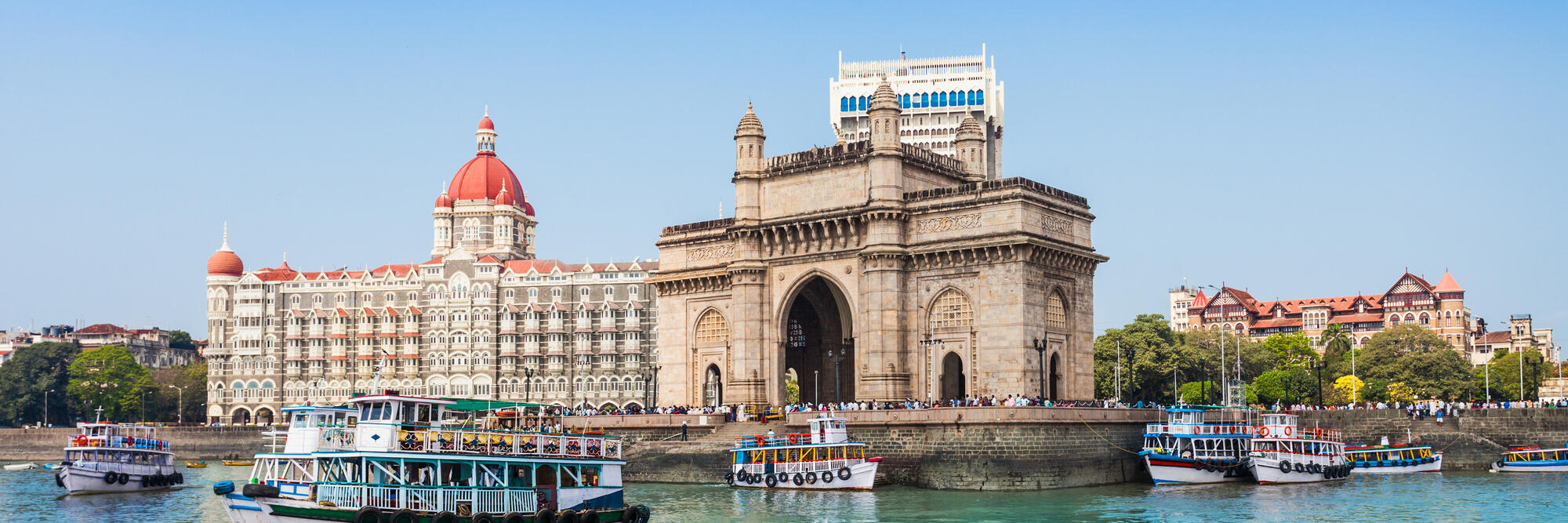Pruma is an Indian national who has lived in the States for many years and recently decided to return to India. Now living between Hyderabad and Bangalore with her husband and young son, she shares some of her experiences of repatriating to India after being away for so long.
Read more about India in the Expat Arrivals India country guide , or read more expat experiences in India.
 About Pruma
About Pruma
Q: Where are you originally from?
A: Hyderabad, India
Q: Where are you living now?
A: I travel between Hyderabad (Banjara Hills Rd no 1) and Bangalore (Whitefield).
We’ve set up homes in our respective hometowns. So, while I’m a local in Hyderabad, my husband doesn’t speak the local language and vice versa. We hope immersion will help us pick up the other person’s mother tongue.
Q: How long have you lived here?
A: Four months
Q: Did you move with a spouse/children?
A: Yes. Husband and an infant son.
Q: Why have you returned to India?
A: We have been meaning to return to India to pursue different career options as the cost of living in India affords us to take on a sort of early retirement. I wish to start work in the non-profit sector full-time instead of just volunteering.
Also, we wish to adopt our second child. We will be treated as non-resident Indians (due to our Indian origin) if we live in India as opposed to being treated as foreign citizens if we had initiated the adoption while living in the US. This might help us get paired with a child sooner.
About India
Q: What do you enjoy most about India? How’s the quality of life?
A: People’s friendliness, especially around the baby. Random strangers will pick him up, pinch his cheeks, and then advise me on how to fix perceived issues with him, such as his dry skin or what will make him gain weight. It’s disconcerting, but I know the advice is well-meaning, and I’ve learned to enjoy it.
Q: Any negatives? What do you miss most about the States?
A: I know this gets said a lot, but I miss the privacy. People seem to gossip a lot and do seem to be all up in our business. Asking questions like how much money we make now or how much we have saved feels weird. I have yet to find a polite way to divert these questions.
Another thing that I miss is ease of travel. We went on frequent meandering road trips. In the US, deciding to go somewhere just meant picking up the keys and wallet and heading out. Driving in Indian cities is tedious, and it feels like a chore. Being stuck in perpetual traffic and shifting between first and second gear takes all the fun out of a drive. Roads are rarely marked, and we seem to get lost often.
Q: Is India safe?
A: In general, yes. Keep your wallet close, don’t wear jewellery that can easily be snatched, and you can go anywhere.
For women, though, there is always the problem of eve-teasing and some amount of molestation. In crowded places like buses and markets, men will frequently try to feel you up. This, unfortunately, is not just relevant to the cities I stay in but to all of India.
Q: How would you rate the public transport in India? Do you need to own a car, or is public transport sufficient for getting around? What are the different options?
A: Bangalore is setting up a metro rail system, and that helps cut down travel time a lot. It’s not available in all areas yet, but autos are easy to flag down if you can’t find buses.
Comparatively, Hyderabad has a better public bus system that is supplemented by a fleet of privately run air-conditioned express buses.
Public transport is only usable when I travel by myself though. With my now seven-month-old son, I still have to resort to using a car (which we recently bought) as there is just too much pushing and shoving in public transport for it to be safe with a baby.
We also purchased an automatic geared motorcycle for running quick errands. We find it to be the easiest way to move around.
About living in India
Q: Which are the best places/suburbs to live in Hyderabad and Bangalore as an expat?
A: In Hyderabad: Madhapur, Banjara Hills, Jubilee Hills
In Bangalore: J P Nagar, 100 feet Road, Whitefield
Q: How do you rate the standard of accommodation in India?
A: If you have the money, you can find great living spaces. Furnished apartments and homes have crappy furnishings and cost an arm and a leg to boot. It might be comfier if you know you’ll be here for a while to furnish a place yourself.
Q: What’s the cost of living compared to the States? What is cheap or expensive in particular?
A: Cheaper:
- Help. The services of anyone from nanny to cook to maid to driver aren't expensive. Doing dishes or wiping counters will become a thing of the past.
- Food. If you are adventurous, hole-in-the-wall-type places will cost you little. Cooking at home is pretty inexpensive too.
- Healthcare. Medicines and doctors are very cheap.
Expensive:
- Homes. Rent in Bangalore or Hyderabad at a decent apartment complex is pricey, and houses are pricier still.
- Food and wine. If you crave any cuisine other than Indian and Indo-Chinese, it’ll be comparatively expensive. Dining out at decent restaurants also costs a pretty penny, especially if you order wine.
Q: Was it easy fitting back into life in India? What has been the hardest part about coming back?
A: We have been lucky because we look Indian and are indistinguishable from the masses. I think the differences show up when we start to talk. Leaving our life and our friendship circle behind was exceedingly difficult. Making friends after leaving college definitely requires more work, and finding like-minded people in India feels harder.
About working in India
Q: What’s the economic climate like in India? Is there plenty of work?
A: Tech jobs are aplenty in both Hyderabad and Bangalore. But the amount of pay that was being doled out to expats for their expertise is coming down fast. If you can get a pay package that pays you as a percentage of your current non-Indian salary, you can live like a king in India. If you are paid in Indian sheckles, know that inflation is high in India, and you might not be saving as much.
Q: How does the work culture differ from the States?
A: People talk of an archaic work hierarchy where you must 'Yes Ma’am' and 'Sir' your superiors and stay logged into work at the office even when you don’t actually have any work. I hear it’s changing, but the progress appears to be slow.
Q: Did a relocation company help you with your move back to India?
A: No. We got rid of everything except for our vacation home when we moved to India.
Family and children
Q: Did your spouse or partner have problems adjusting to their new home?
A: The move was a lot of work, and we did it with a three-month-old baby in tow, so the higher share of work fell on my husband, and he arrived here exhausted. He is now working at a company here, finds work-life interesting, and often relates new anecdotes from work. No move to a completely new place is seamless, but I believe he is settling in well.
Q: Did your children settle in easily?
A: The time adjustment for our baby has been the hardest. He still gets up often at night, and we haven’t been able to change his sleep pattern yet.
Our son is enjoying India, though, as he is a very friendly baby, and there is no dearth of people to play with in India.
Q: What are the schools like? Any particular suggestions?
A: We haven’t started looking at schools yet, but there seems to be a crop of great play schools everywhere.
Q: How would you rate the healthcare in India?
A: I’d give it four stars. I take one lippie off because the concept of an appointment is lost on the administrators. There have been times when we have waited an hour to see the doctor. But care itself is good, if a little rushed, especially when you consider how cheap it is.
And finally…
Q: Is there any other advice you would like to offer new expat arrivals or those returning back to the country?
A: Ship your stuff to India. At first glance, things might seem cheap, but the quality is terrible. Good furniture is uber expensive. There’s a similar problem with everything from clothes to linen to shoes, as anything decent is impossible to find at a good price.
Get BPA-free baby items. Also, baby food that runs under 2 USD in the US will cost you close to 10 USD per box in India. I’m talking Gerber baby food. If you were hoping to feed organic food, ship it. Organic food is hard to find here, especially in the form of fresh vegetables and fruits. Baby organic food is almost non-existent.
Bring loads of patience with you. Everything will take a lot of time. Service is always slow, and representatives will most likely be under-trained. You will get used to it eventually.
~ Interviewed June 2012



